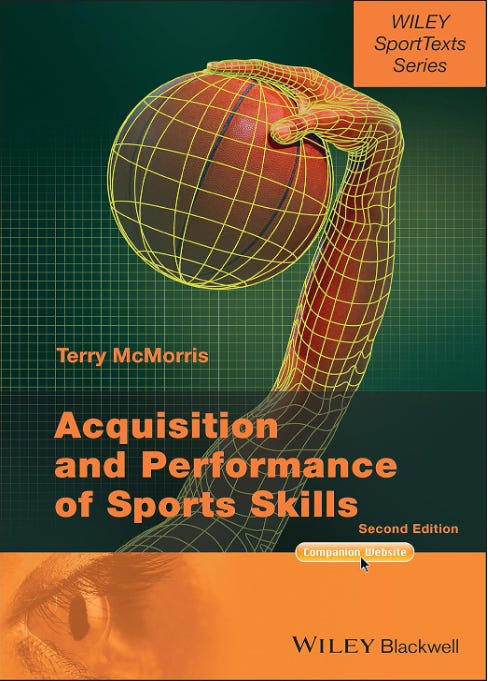The Bookshelf August 2025
Acquisition and Performance of Sport Skills by Terry McMorris
We all know that climbing is a skill sport, but far too often we don’t coach it like that. I see coaches that are great in the weight room and in assigning hangboard work, and I see some that are in that “here’s how I did that beta” mode. Neither serves the athlete, and I think that we all can do better.
Look, if you're serious about coaching climbers – or any athlete, for that matter – you need to understand how skills are actually built and performed under pressure. This isn't some fluffy motivational read; it's a deep dive into the science behind what makes an athlete good, and how they get better. McMorris lays out the physiological and psychological underpinnings of motor learning, decision-making, and performance optimization. For us in the climbing world, where every move is a complex interplay of strength, technique, and decision making, this book offers a much-needed framework beyond just "climb more."
What McMorris does so well is connect the dots between the lab and the crag (or court). He breaks down concepts like deliberate practice, the role of feedback, and how different types of practice impact long-term skill retention. Think about coaching a climber who's struggling with a dynamic movement: is it a strength issue, a coordination problem, or are they overthinking it? McMorris provides the lens to analyze these situations through the science of skill acquisition. He covers everything from perception-action coupling – essentially, how climbers see the holds and immediately know how to move – to the impact of stress and anxiety on performance, which, let's be honest, is half the battle on a redpoint attempt. It's about understanding why certain drills work and how to design training that actually transfers to sending.
This isn't a book you skim. It's a resource you study, highlight, and come back to. If you're tired of guessing games and want to implement coaching strategies based on solid scientific principles, this book gives you the roadmap. It's not always an easy read – it's academic, as it should be – but the insights you gain into how your climbers learn, adapt, and perform are invaluable. For any climbing coach looking to elevate their game beyond just prescribing sets and reps, this book is essential reading for truly understanding the art and science of skill development.


